Over 45% of travelers are optimistic that they’ll rebook travel canceled due to Covid-19, according to data released by the Tourism Crisis Management Initiative (TCMI). What’s more, anxiety around travel seems to be plateauing.
“In the past 2 weeks, anxiety has started to level off,” says Dr. Ashley Schroeder, Managing Director of the TCMI. “Consumers aren’t becoming more anxious.”
That means there’s an opportunity for communicators in the tourism industry to begin to shift their messaging. Dr. Schroeder’s research reveals some fascinating shifts in customer sentiment around travel.
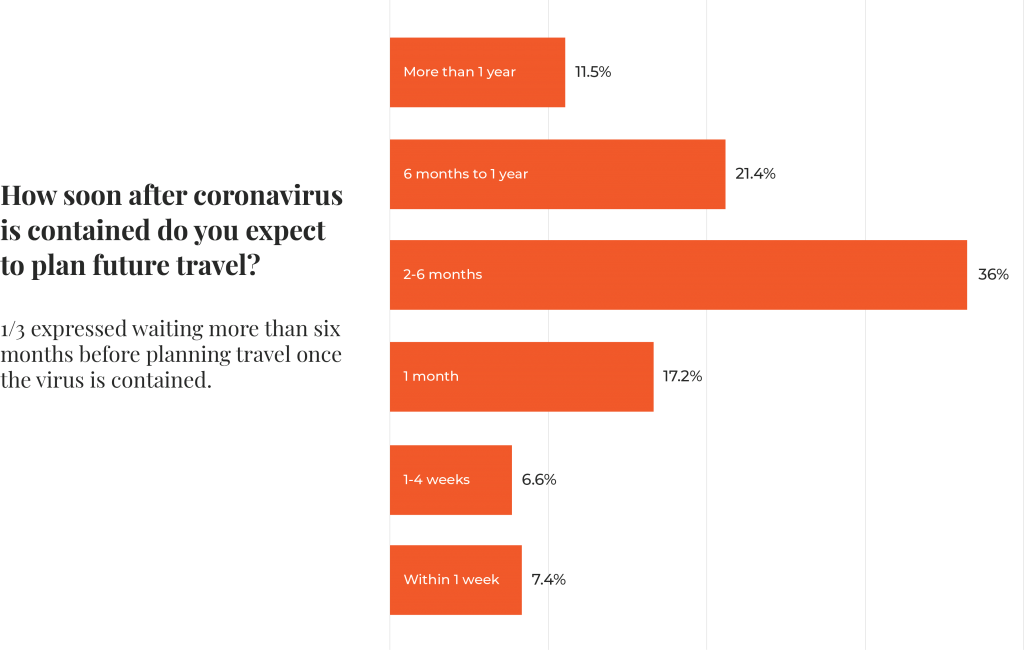
In response to the early reports of the coronavirus crisis unfolding in China, Schroeder and her research team saw a need to better understand traveler anxiety in the US market. Since January 2020, they’ve been conducting ongoing research, surveying US consumers weekly to measure their sentiments and anxieties around travel at any given moment. Through their research, Schroeder and her team have identified some key insights for travel communicators.
Tourism organizations that capitalize on these opportunities to adapt their approach to communications may well see their business emerge more resilient than their competitors.
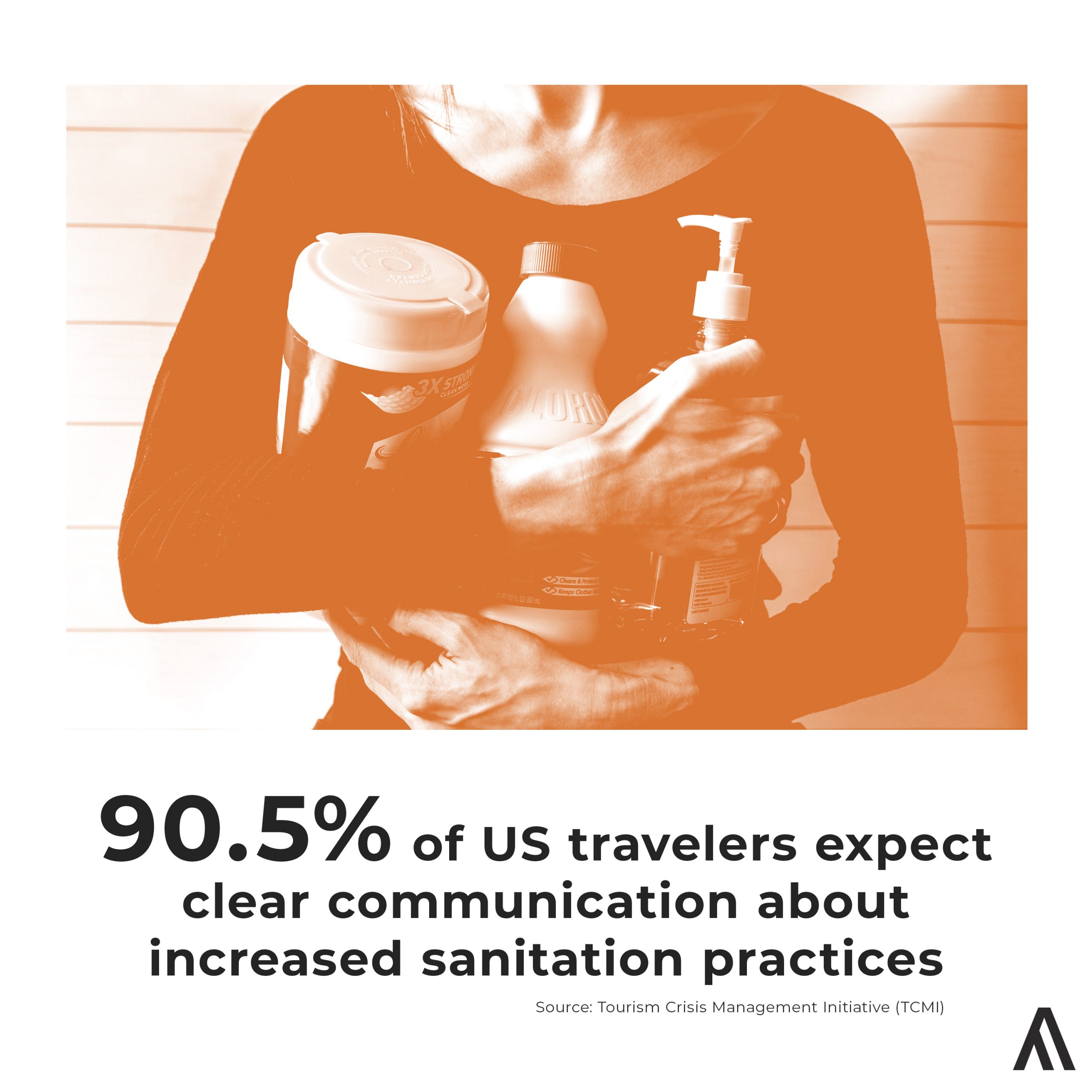
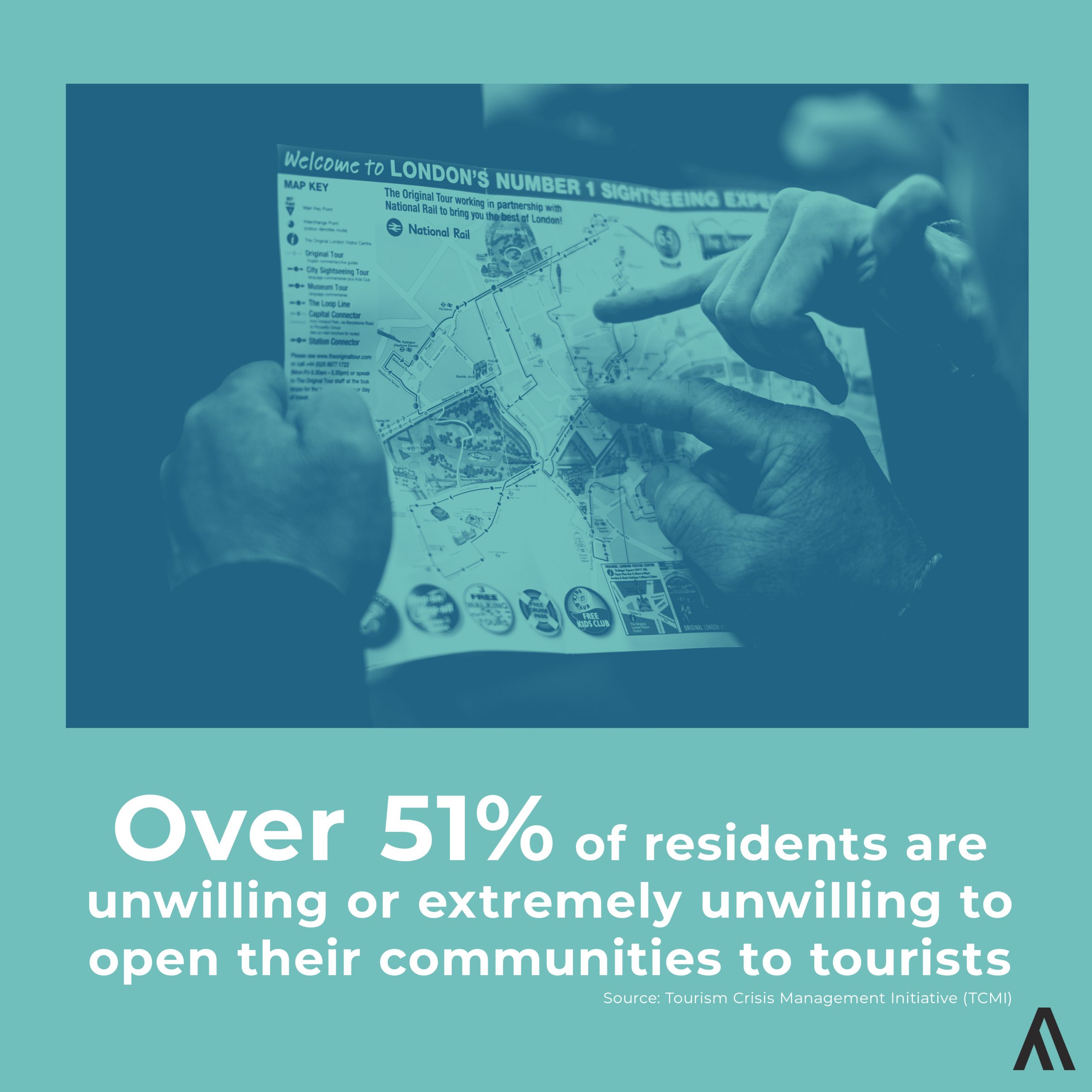
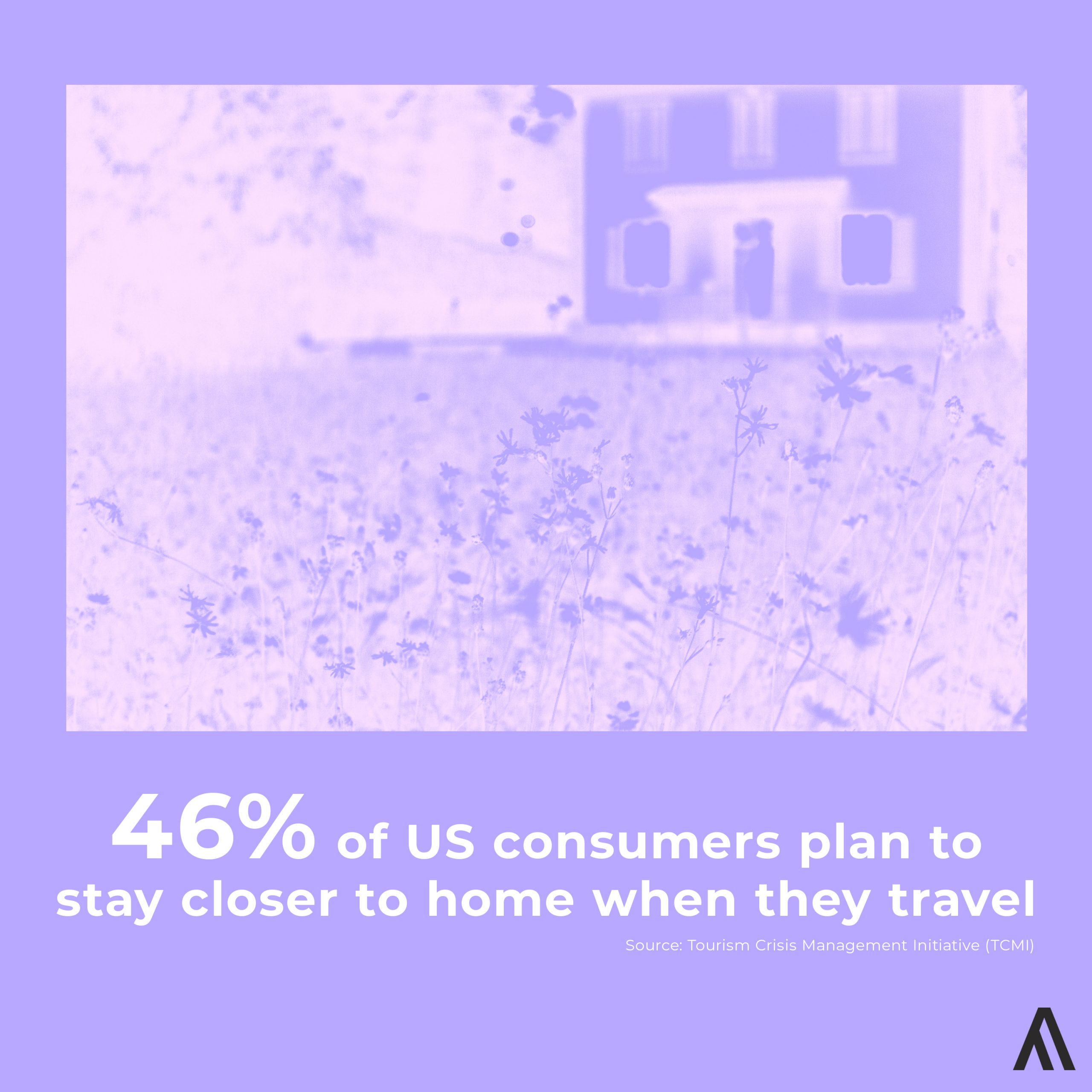
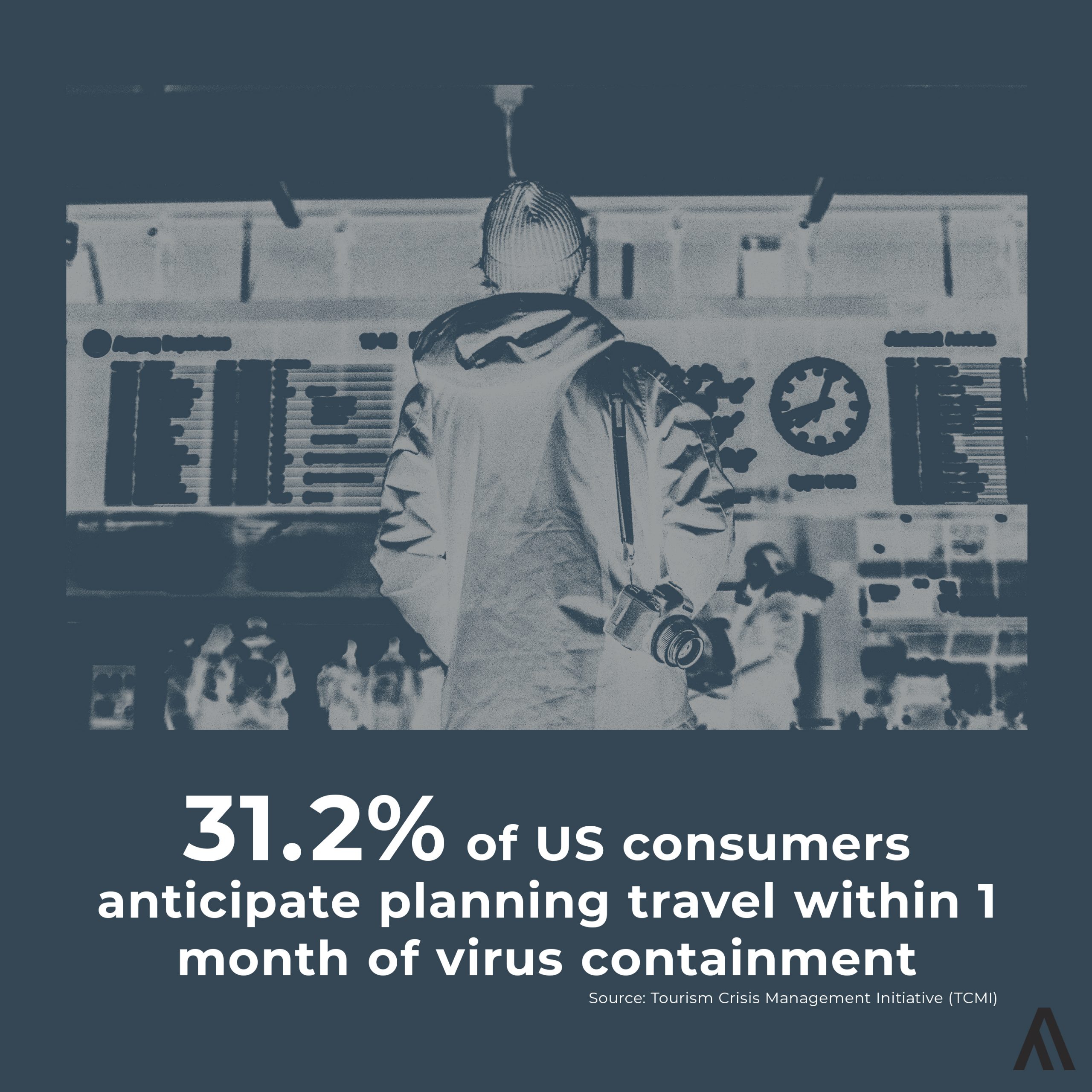
Substance matters when it comes to safety
US consumers have high expectations about safety and health measures provided by the tourism industry. 90.5% of US consumers surveyed expect clear communication about increased sanitation practices when traveling.
“Brand awareness is great, people need to remember that you’re there,” says Schroeder. “But to break through the noise, being blunt about safety is going to be very reassuring for travelers.”
That means clearly communicating the steps your organization is taking to help ensure traveler safety – from cleaning and sanitizing schedules, to cashless purchase options. Brands that market this information in the right way may be at the top of the list when customers choose to travel again.
Communicate clearly with residents to win their trust
“The voice of the resident is becoming really important in tourism,” says Schroeder. “Generally, residents are not willing to welcome travelers into their communities right now.”
In fact, Schroeder’s most recent wave of research indicates high levels of unwillingness from locals to welcome travelers. Over 51% of residents surveyed reported feeling unwilling or extremely unwilling to open their communities to tourists today.
This means that travel communicators have a real opportunity to engage local communities with honest, pro-active dialogue. No platitudes, and no one-way conversations. “Travel companies need to communicate to residents what they’re doing for safety,” says Schroeder. Travel organizations that engage residents in clear and open communication will be among the first to see communities open back up to their business.
Look to local travelers
As Americans begin to plan for travel again, they may keep their sights closer to home. Over 46% of consumers surveyed reported that they plan to stay closer to home when they do travel again. For tourism communicators, this means shifting marketing strategies to target the local tourist could pay off in a big way.
Find out what makes the first wave of tourists tick
31.2% of US consumers surveyed anticipate planning travel within 1 month of the coronavirus being contained. This first wave of travelers to return to the road will be a unique group. They will likely be more experienced travelers, who are less risk averse than others. Communicators will need to work to understand this first wave of tourists and how to reassure them.
Schroeder advises that savvy travel organizations will “come out of this quicker if you can understand this segment of the market.”
Consumer sentiments and anxieties will no doubt continue to change and evolve over time. Thankfully, Dr. Schroeder and the team behind the TCMI have committed to continuing their research until the pandemic is ruled over. Until then, those in the tourism industry can look to this data for insights on how they can adapt to changing times.


